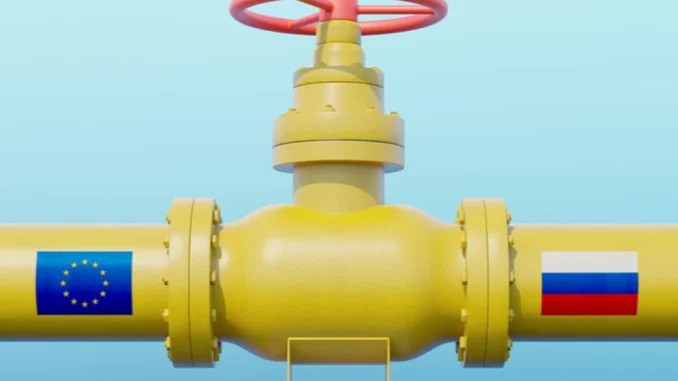
“We recognise restricting Russian energy revenues is an essential part of our support to Ukraine and are pursuing to end significant dependency on and to work on transitioning away from imports of Russian gas as soon as possible,” the group added in a statement released at the end of a three-day summit in Turin.
Many nations, including the EU bloc, imposed restrictions on Russian coal and oil imports in the wake of its invasion of Ukraine in February 2022 to reduce Moscow’s revenues from international trade but gas imports were not sanctioned.
The G7 – comprising Canada, France, Germany, Italy, Japan, the UK, the US and the EU – said nations could mitigate negative fallout from reducing Russian gas imports by increasing LNG imports, as well as investing in energy infrastructure.
Given the “exceptional circumstances”, the group said “publicly supported investments in the gas sector can be appropriate as a temporary response, subject to clearly defined national circumstances”.
“Sensible strategy”
“It’s a sensible strategy and two years ago we would never have hoped to be in such a good position today,” Matteo Villa, analyst at think tank ISPI, told Montel.
“Gas prices are now almost back to pre-invasion levels, albeit remaining still way higher than US ones, while our dependence on Russian gas, both pipeline and LNG, has shrunk from 50% to less than 15%.”
Even so, much still remained to be done and the ongoing strategy of substituting Russian imports with LNG shipments from other parts of the world risked “locking in too much natural gas investment, in particular in the form of LNG regasification plants or FSRUs [floating storage and regasification units],” Villa said.
“FSRUs at least can be resold and moored elsewhere in ten years’ time but LNG regasification plants will be there to stay.”
Coal phase-out
Earlier, the G7 announced the group had agreed to phase out coal-fired power generation by 2035.
“A coal-phase out by 2035 by G7 countries will have important repercussions in some of the members’ energy systems such as the US, Japan and Germany, though it will be much lower on the Italian, French, UK and Canadian energy systems as coal already has a very small share of the power mix,” Francesco Sassi, analyst at the think-tank RIE, told Montel.
“Geopolitics is once again a major factor in shaping G7 energy strategies, and energy geopolitics and shocks could return in various forms to affect market fundamentals. In the EU, we have been extremely lucky with winter weather so far. That’s why complacency should have no room in strategising energy security measures,” he added.



